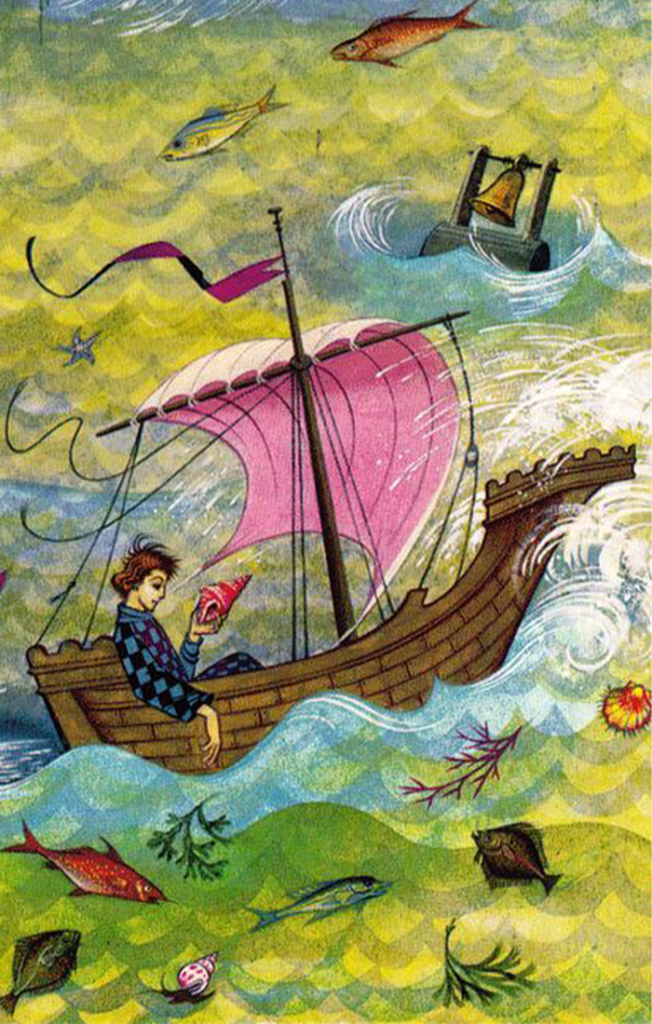‘Errantry’
JRR Tolkien
Commercially found in Adventures of Tom Bombadil
Image: detail, Pauline Baynes’ illustration, for above
[Where did JKR hear the buzz of Dumbledore … ]

‘Errantry’
JRR Tolkien
Commercially found in Adventures of Tom Bombadil
Image: detail, Pauline Baynes’ illustration, for above
[Where did JKR hear the buzz of Dumbledore … ]
I am not saying Christians are like coyotes. [For that, some could cut caustically to coyotes are like Christians — tricksters, roaming in the dark, feeding on the dead … ] Simply noticed — somewhat in passing, as it’s said, having attained, apparently … achieved? … some kind of state where nearly anything I hear,
Short answer: he did not. Neither did Prince Myshkin, that we know of. Likely both believed it. Beauty — in the person of Christ — will do so. And clearly D wrote of M in The Idiot to explore art and beauty and ugliness and salvation. But did he say it, and did he believe that
[Television is educational.] One Saying the same stuff over and over looks like you have different things to say. Two If you’re ever in a below-average film or streaming series, and you beat the tar out of a guy, in a house, and you gaze down in both some shock as also a certain
A line everywhere misattributed to Chesterton reads thus: The young man who rings the bell at the brothel is unconsciously looking for God. This line is not from the great [several senses of the word] man who recently celebrated his 150th birthday, but the mid-century most unmodern novelist Bruce Marshall. The words — which do
Do we doubt locals thanked them for their service? I’m not equating the two. They were wrong; glad we crushed them. Only noting it’s likely they thought as much about such things as we do, which is to say not much. German citizens who believed their leaders, loved their country, watched their sons get on
Among the worst things about The Slap is how it has fed self-righteousness in all but the two participants, and they already had it or it wldn’t have happened. But there is Solzhenitsyn, again, with the line between good and evil that cuts through every human heart, and there is Dostoevsky, always, reminding us via
All the while watching Mad Men seemed to me the question was ‘Would Don Draper be redeemed?’ Breaking Bad was running roughly concurrently and the same question with an otherly alliteration was being posed: ‘Would Walter White be damned?’ The answer to the first was quintessentially postmodern, exquisitely childish, and thereby perfect — neither. Or, as an actual
Someone the other day called Elon Musk both an “inventor” and “a badass” but he is neither. Let me say flat-out, upfront, and clearly it’s good that Musk — entrepreneur behind the Tesla carmaker, companies involved in solar power and space exploration, and who was previously part of PayPal — is alive. We need people like him
. [you are not here] It’s not going to be easy. Thinking of nothing takes longer than one might expect. [In]famously ‘a show about nothing’ Seinfeld ’twas really about nothingness. Nothingness is nihilism and is to the nothing of creation as ‘a live coal dropped in the sea‘. Ours is the God whose ‘strength is
Sometimes successful films — ones that aren’t expected to be, by many excellent people — spawn copycats, a fact as well-known as well-attested. The followers aren’t as awesome as the originals but they’re not always so awful, and the makers, if they care a little, will throw some new stuff in, or at least get people
Yellowstone sucks. Och! — but you knew that. Wait … umm … we can agree on that right? + Prolly not — else why this blog post and the recent headline that its ‘creator’, Taylor Sheridan, said Season 4 is in the can. + I tried to get through Season 1 again. Had bought it a